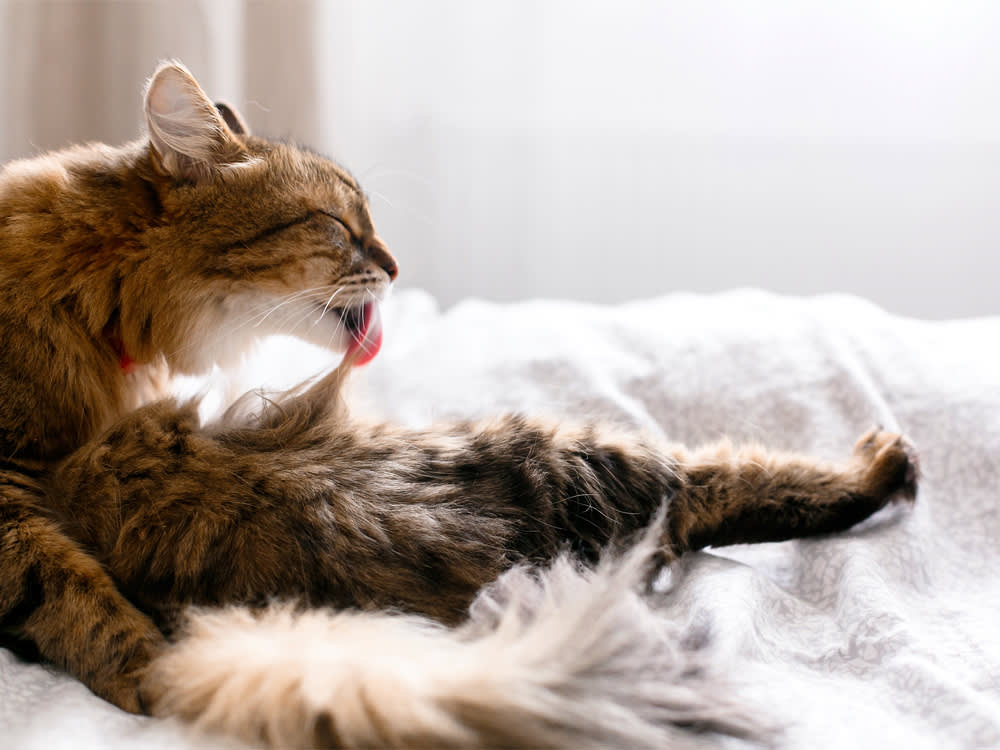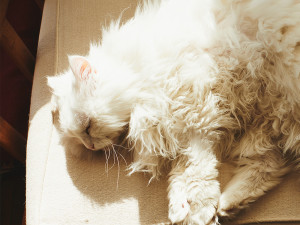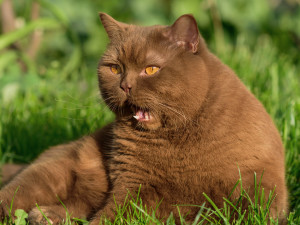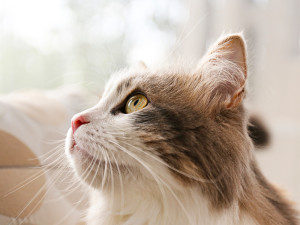Is My Cat Going Bald?
If your Persian is looking more like a Sphynx, underlying health conditions could be to blame for your cat’s hair loss.
Cats shedopens in new tab. It’s nothing to worry about. Sure, it sucks having everything you own covered in a gossamer web of discarded fluff, but everything has its price. Even kitty snuggles. Excessive hair loss, however — the kind that leaves your cat’s coat thin or patchy — is a different story. It almost always indicates a bigger medical issue and should be assessed by a vet as soon as possible.
“Benign hair loss is extremely rare in cats, so rare that it’s unheard of,” says Dr. Sarah Dougherty, DVM. “Hair loss generally indicates an underlying medical condition that needs to be addressed. There are many causes for hair loss including bacterial infections, fungal infections, autoimmune diseases, parasite infections, cancer, even anxiety — just like people. Fleas and flea allergy dermatitis are the most common allergic skin disease causing hair loss that we see, but the issues definitely don’t stop there.”
Save on the litter with color-changing tech that helps you better care for your cat.
So at what point should you be concerned?
“Any sign of hair loss is an indication to be concerned,” says Dr. Dougherty. “The sooner your vet can evaluate the hair loss, the more successful treatment will be. In addition, quite often hair loss is the last symptom owners will see. Frequently, the issue has been going on for weeks or months before hair loss is evident. Some warning signs to look for include scratching, changes in energy levels, increased vocalization, and excessive grooming.”
Ask a Vet
Pet health question that’s not an emergency? Our vet team will answer over email within 48 hours. So, go ahead, ask us about weird poop, bad breath, and everything in between.Get Pet Help
What exactly does a vet do when evaluating hair loss?
“The most important test is the physical exam. There is so much information that is obtained in simply evaluating the cat: the pattern of hair loss, the type of hair loss is — is the hair falling out or are the hairs broken off at the level of the skin? Hair falling out indicates that the disease is within the skin. Hairs broken off at the level of the skin indicate self-trauma. The results of the physical exam will then help guide the veterinarian in determining what, if any, further testing needs to be done. These can include skin impression tests, skin biopsies, hair pluck tests to check for fungal infections, or urinalysis and blood work.”
There must be something you can do on your own, though — supplements, special foods — right?
“There are some supplementsopens in new tab that I recommend, but it depends on what is causing the underlying issue. If it is truly an allergic skin disease causing the hair loss, then I will recommend a high-quality omega fatty acid supplement, such as Welactinopens in new tab. Omega fatty acids (specifically EPA and DHA) help strengthen the skin’s innate barrier and make it less susceptible to allergic reaction.
If the issue is self-barbering due to anxiety, then I recommend using a Feliwayopens in new tab calming pheromone along with other prescribed treatments to help manage the cat’s mental health. Beyond those specific conditions, though, supplements aren’t really going to help with hair loss.” It’s also important to remember that supplements (both for cats and for humans) are not regulated by the FDA, so if you really want to add supplements to your cat’s diet, make sure you do your research first. Or, at least, check with your vet.
Can professional grooming help?
“Hair loss is related to an underlying medical condition so professional grooming isn’t going to prevent that,” says Dr. Dougherty. However, it is important that you keep your cat well groomedopens in new tab and stay on top of their daily brushings. “Most cats do need regular, at-home care. Daily brushing can help keep skin and hair coats healthy, and will reduce the risk for hair matting.” You can always opt for a professional grooming — there's a helpful little tool called Google that has incredible answers to inquiries like “cat grooming near me.”






